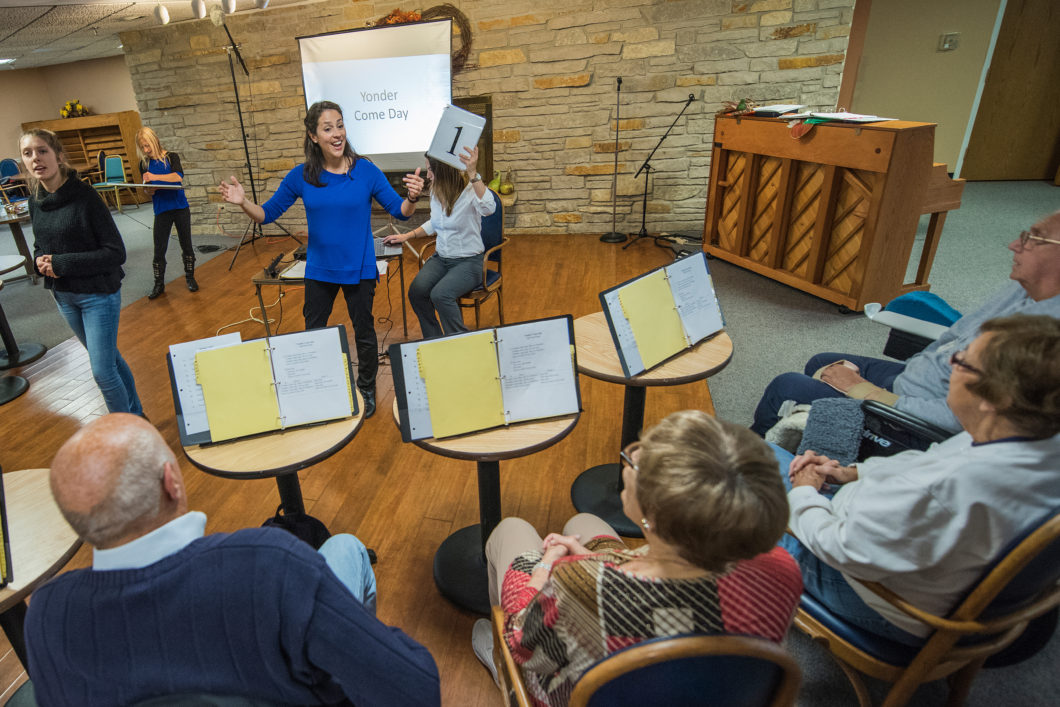Although language is localized to the left frontal and temporal lobes of the brain, research shows that music is neurally “wired” throughout. For people with brain damage, musical abilities are often a relative strength and the power of music can improve communication, socialization, and confidence.
While attending Northern Illinois University (NIU) as an SLP grad student, Elizabeth (Beth) Lanza recognized the important connection between communication and music and wanted to find a way to bridge that relationship for individuals with speech, language, and/or cognitive challenges as a result of stroke, brain injury, or progressive illness.
Establishing Bridges Choir
Working with Dr. Jamie Mayer, Beth co-wrote a grant that allowed her to travel to California to learn about aphasia choirs. In 2017, Beth’s research led her and Dr. Mayer to establish Bridges Choir at NIU. Just as a physical bridge connects people to new places, Bridges Choir represents the idea that music can be a bridge that connects one person to another through group singing, stimulating cognitive-linguistic functions through music. It allows people to express themselves and find their voice through music.
Held at a local assisted living center, Bridges Choir attracts approximately 10 regular participants each semester. Under Dr. Mayer’s supervision, it’s run by SLP grad students who are matched with choir participants to assist with auditory comprehension and linguistic and cognitive needs.
The choir is also an opportunity to research the relationship between choral singing and cognitive communicative outcomes. Undergrad students assist with language sample collection and analysis, as well as collecting other language and cognitive data from participants.
Finding My Place
When I started grad school at NIU, I was thrilled for the opportunity to use my double major in music and CSD from undergrad to support the choir. I never imagined where that opportunity would lead. In the blink of an eye, Beth was graduating and needed to pass the torch. She asked me to be the new student director—what an honor!
I didn’t think I was capable of filling her shoes. In fact, as a music major, I struggled with performance anxiety. I was never comfortable singing in front of an audience; how could I stand up and sing in front of an entire choir?? But after observing Beth, I realized it wasn’t about me leading Bridges Choir in song. It was about leading the choir members to help them find their voice and create their own music.
Sharing Our Voices
We begin each semester with a brainstorming session for members to suggest songs for our semesters-end community concert. This allows everyone to be actively invested in the group by sharing their favorite musical styles, genres or songs that they’ve connected to. Our rehearsals begin with vocal warm ups, including stretching, expansive breathing, and vocal exercises. Although found in any choir, these warm-ups are also specifically chosen to help support vocal strength and function. Then, we learn our music and take advantage of the social setting for members to practice their communication skills.
We end each rehearsal by singing “Fight Song,” by Rachel Platten. This has become something of an anthem for our group—despite the trials we all may face in life, we have the strength to share our voices with the world.

